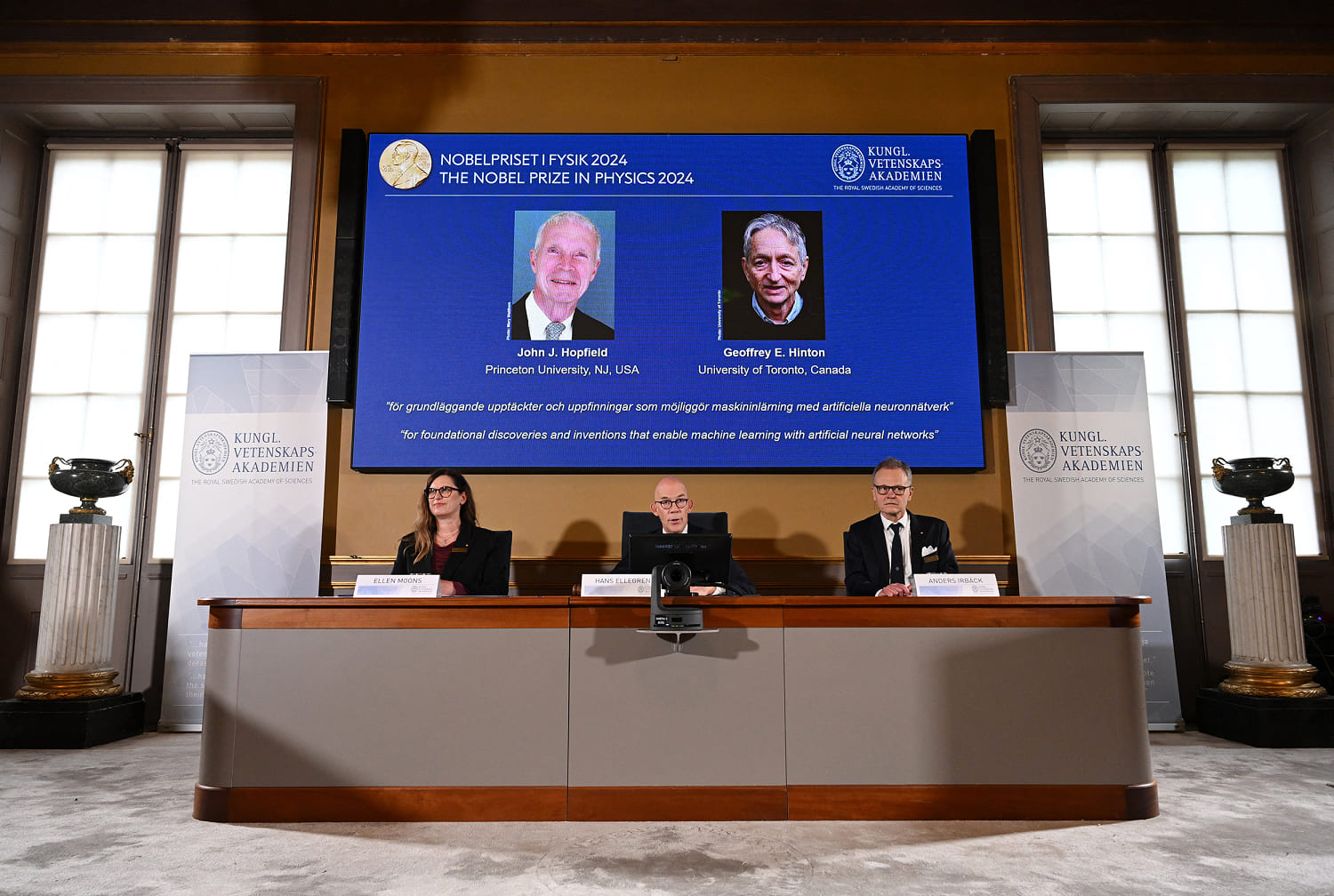
An American professor and a British-Canadian professor won the Nobel Prize in Physics on Tuesday for their decadeslong, trailblazing research forming the building blocks of artificial intelligence.
John J. Hopfield, 91, was awarded the honor alongside Geoffrey E. Hinton, 76, who left his job at Google last year so he could speak freely about his concerns over the technology.
The pair are central figures in the creation of modern-day AI.
Since the 1980s, they have been using tools from physics to develop the foundations of what is known as “machine learning,” in which computers are fed masses of data to learn an array of tasks — from diagnosing diseases to knowing people’s favorite streaming shows.
Their research “formed the building blocks of machine learning, that can aid humans in making faster and more reliable decisions,” Ellen Moons, chair of the Nobel Committee for Physics, told a news conference.
The use of this technology has “become part of our daily lives, for instance in facial recognition and language translation,” Moons said, while warning that AI’s “rapid development has also raised concerns about our future.”
The machine-learning revolution can arguably be traced back to Hopfield, a Chicago-born emeritus professor at Princeton University.
In 1982 he invented the “Hopfield network,” a type of neural network — as these machine-learning programs are known — that was capable of mirroring certain functions of the human brain and recalling “memories” using only partial information.
Hinton is a British-Canadian professor at the University of Toronto who is often referred to as one of the “godfathers of AI.” He used Hopfield’s invention to come up with his own network capable of recognizing shared characteristics among large sets of data. An everyday use for this might be classifying lots of images based on things contained within them.
“I’m in a cheap hotel in California which doesn’t have a good internet or phone connection,” Hinton said Tuesday, quoted by the Royal Swedish Academy of Sciences that announced the prize. “I was going to have an MRI scan today but I’ll have to cancel that!”
He worked for a decade at Google, becoming one of the world’s most renowned voices on AI. He very publicly quit his job last May, posting on X that he made the decision “so that I could talk about the dangers of AI.”
“It is hard to see how you can prevent the bad actors from using it for bad things,” Hinton said in an interview with The New York Times.



